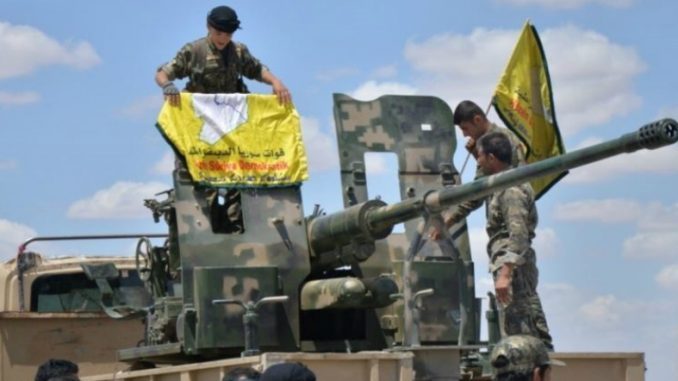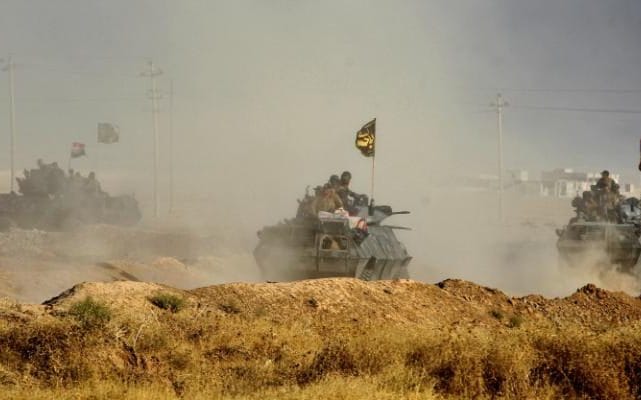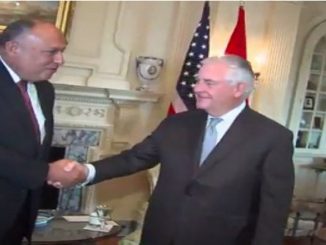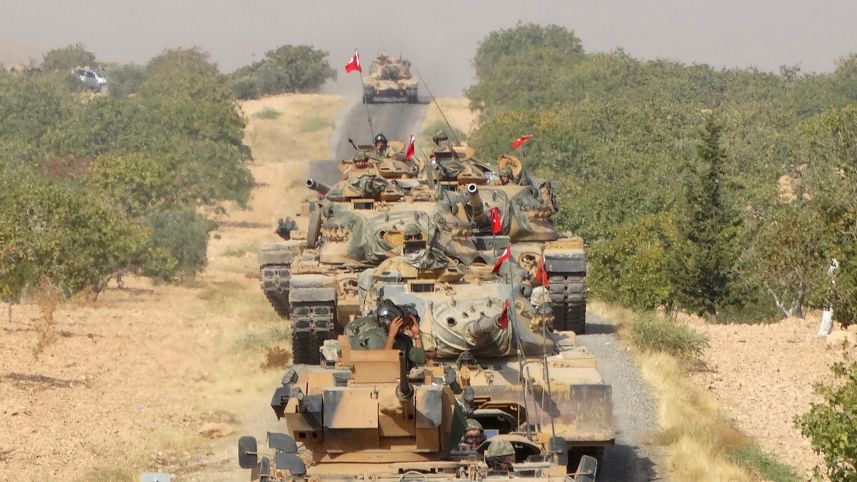
A spokesman for the Kurdish militias in Syria said they aim to retake all the areas held by ISIS to create autonomy in northern Syria, while threatening Turkey not to interfere in their plans.
The Syrian Democratic Forces (SDF) alliance, which is dominated by the Kurdish YPG militia, is supported by the US as the latter uses them in its war against ISIS.
The SDF, backed by US coalition, launched a campaign with the ultimate aim of capturing Raqqa in November. The first two phases focused on capturing areas to the north and west of Raqqa, part of a strategy to encircle the city.
The first phase was pushing from the north. Second one was pushing from the west. And now, in the third phase, the forces are trying to push from the east.
In addition, the U.S.-led coalition fighting Islamic State has boosted support for its Syrian allies, supplying armored vehicles for the first time as they prepare for a new phase in their campaign to capture Raqqa.
The SDF has begun a new phase of its campaign on Raqqa, aiming to complete its encirclement and sever the road to the group’s strongholds in Deir Ezzor province.
Anwar Muslim, the chairman of the Kobani provincial government said that the Kurdish militias aims at taking al the areas held by ISIS for themselves.
“We are carrying out a successful offensive, nearing Raqqa, we are coming closer to the city… We will fully liberate it soon … Our goal is to liberate not only Raqqa, but all territories seized by the ISIS,” Muslim said.
According to Muslim, Kurds are planning to create an autonomy of local residents in Raqqa similar to “what was created in the Syrian city of Manbij after it was cleared from the ISIS.”
In addition, they will not cede their territories, including the city of Manbij, to the control of Turkey and will defend them if Turkey attacks.
“Manbij is autonomous now. We were helping locals to liberate it from the Islamic State [Daesh]. If they ask us again, we will help, of course. We will not put Manbij under Turkish control,” Muslim said.
He added that sometimes Turkey resorted to “provocations” and stressed that “Kurds had the right to self-defense.”
“We regard Turkey, which sent its troops to Syria, as occupants. Sooner or later they will have to leave Syria,” Muslim added.
Turkish warning to the Kurdish militias
Turkey’s military operation in Syria named Euphrates Shield, which was launched last August to drive Islamic State militants from its border and prevent Kurdish fighters from gaining ground and strengthening their positions, has changed the balance of power in northern Syria and added more tension to the already complicated area.
have managed to retake the ISIS stronghold of Jarabulus, alongside with al-Rai to the west and Dabiq city. Now their operation is focused on al-Bab as the last major stronghold for ISIS in northern Syria.
Turkey also attacked the YPG Kurdish militias ordering them to withdraw from East Euphrates region. The Turkish military also shelled Kurdish militias’ positions in northern Syria while the rebel forces clashed with them in many incidents and forced them to withdraw behind the Euphrates river.
Erdogan has made it clear it many times that his country’s operations aim at fighting the Kurdish militias as well as defeating ISIS, as both of them resemble a threat to Turkey’s internal security.
“Al-Bab is about to be captured. Manbij and Raqqah are next,” The Turkish president, Mr. Erdogan, said, adding their number one priority was to form a safe zone in the country.
Erdogan reiterated that Turkey does not have any plans to stay in Syria after the operations end, saying Turkey’s only goal is to “clear this region of terrorism”.
“The goal is to establish a safe, terror-free zone of 4 to 5,000 kilometers, and to prevent migration from Syria, and ensure the return of [Syrian] people who live now in our camps.
“Of course, in order to do this, we also would like to almost build new cities there. I have shared this with Mr. Trump and coalition forces, including Germany in particular,” he added.
“The next step is to establish a no-fly zone,” Erdogan said. “Then they [the Syrians] will be able to establish their national army and feel themselves safe.”
Erdogan has supported this idea in his recent phone call with Trump, among other issues that reflect a state of understanding between the two leaders.
Turkish officials said that Erdogan urged the US president to curb Washington’s support for Syrian Kurdish militia, known as the YPG, and cited Turkish progress in al-Bab to argue it would be a better partner in the fight for Raqqa.
In addition, the two leaders had touched on issues including a “safe zone”, as well as the regional migrant crisis and the fight against terrorism. Turkey has long advocated a secure zone for displaced civilians in Syria threatened by Islamist militants or forces fighting for Syrian President Bashar al-Assad.



